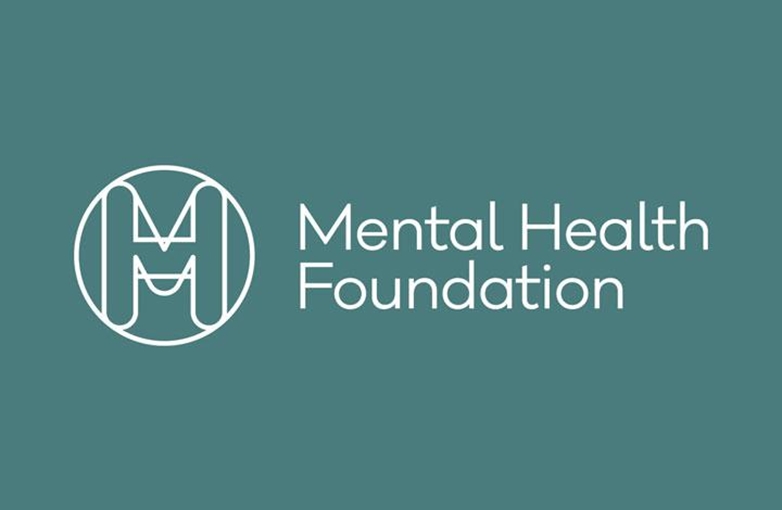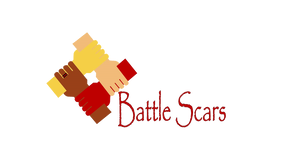Looking after a child or young person's mental health
There are times when we all feel the strain. As parents and carers, there are ways we can support children and young people to give them the best chance to stay mentally healthy.
See other pages in this section including Mental Health resources and Parent helplines and support.
Anxiety
Affirmations
Anxiety can often take us by surprise, throwing us off course and preventing us from going about our normal lives. But repeating affirmations can help us take back control, and vocalise our intentions. Next time you feel overpowered by anxiety, stop for a moment, take a deep breath, and repeat one of these affirmations firmly to yourself. You may be surprised at the effect such simple, reassuring words can have
Mean world syndrome
Right now, perhaps more than ever before, it's easy to feel overwhelmed by the news cycle. But have you ever stopped to consider how the bad news that we're consuming could be seeping into the rest of our lives? It turns out that what we see and hear being reported, could be negatively impacting how we view the world. Find out more about mean world syndrome and how to tackle it.
Sunday night anxiety
The weekend is just about to begin, but something that a lot of people will be familiar with is a sense of dread that winds its way up inside you on Sunday night. Whether you have a busy week of work ahead of you, or you feel overwhelmed by your job, don't let anxiety about the week ahead disturb your weekend. Learn how to tackle Sunday night anxiety, for good.
Understanding social anxiety and self esteem
Understanding worry
Supporting a child with anxiety

Charlie Waller have released a booklet that looks at anxiety, its impact while offering practical ideas for your child - and you- to deal with this common but distressing experience.
For more resources, visit their website.
How to manage fear and anxiety
Download this guide from the Mental Health Foundation on how to cope and where to seek help.
Depression
A Parents Guide to Depression; contains a summarised list of warning signs, advice and links to agencies for further support if you suspect that your child may be suffering from depression. The information explains how a referral should progress from initial enquiry to treatment. It is important to note that isolated symptoms or signs should not be taken out of context. If you have any concerns please call 111.
Self Harm - Where can I get support?
Do you need information and support on issues other than self harm? There may be other organisations within Gloucestershire and the UK who can help you.
Coping with Self-Harm - A Guide for Parents and Carers developed by researchers at the University of Oxford. Includes information on the nature and causes of self-harm, how to support a young person when facing this problem and what help is available.
Family Lives offers a guide to understanding self-harm, practical suggestions and links to further support.
The NSPCC's guide to self-harm explains how to spot the signs and what you can do to help.
University of Oxford guide for parents and carers on supporting their child or young person in dealing with self-harm.
 Battle Scars - Supporting anybody affected by self-harm
Battle Scars - Supporting anybody affected by self-harm
Are you between 10 and 17 years old?
Do you do things that cause your body and mind harm (including not eating properly)?
Would you like to change all or some parts of this behaviour?
Would you like to find ways to manage self-harm and life without having to hurt yourself?
Do you live in the UK? If you answered yes to these questions, you can request the Discovery Journal for free - CLICK HERE. It will be posted out to you in a discreet padded envelope with no mention of Battle Scars or self-harm.
If you answered yes to these questions, you can request the Discovery Journal for free - CLICK HERE. It will be posted out to you in a discreet padded envelope with no mention of Battle Scars or self-harm.
The book must be ordered by the young person
If you're a carer or a professional, you need to show this page to the young person and let them decide whether they wish to order it or not -
they must be ready to work on their self-harm, NEVER FORCE anyone to try.
Suicide prevention
Know the Signs: information on suicide and self-harm for parents from the Samaritans, a national organisation for anyone in distress and in need of immediate support:
- Tel: 0116 123
- Email: jo@samaritans.org
Papyrus is a national charity for the prevention of young suicide.
- HOPEline UK: 0800 068 41 41
- Text: 07786 209 697
- Email:pat@papyrus-uk.org
Papyrus HOPEBOX
A HOPEBOX goes by a lot of names: crisis box, emergency box, self-soothe box, happy box. You can call it anything that makes you feel comfortable. The idea behind this box is that it is filled with things that can help you to feel better. When you're feeling upset, anxious, or experiencing thoughts of suicide then you can use the box as a way to feel better. One key thing to remember about a HOPEBOX is that it is personal to you. This is really important, as everyone responds differently to different things. You can make your own box, or decorate any sort of container or bag to use, and some people even make small pocket-sized versions to take out with them in case they need it. The more personalised the better, and creating the HOPEBOX in itself can be a really good distraction technique or self care activity.
The Zero Suicide Alliance collaboration of National Health Service trusts, charities, businesses and individuals offers free suicide prevention training.
Suicide Crisis is a registered charity which has been running a crisis centre since 2013. Providing face to face support to people who are at risk of suicide, we are totally independent. We know from speaking with families that the inquest can be a daunting prospect. Families can get support on how to cope after suicide, when it can get very confusing with so many unanswered questions.
The Staying Safe website is a potentially life-saving resource developed by 4 Mental Health, with invaluable with invaluable input from our Expert Reference Group of international academics, people with lived experience (including of surviving a suicide attempt, self-harm, supporting a friend or family member or bereavement by suicide), suicide prevention experts, mental health practitioners, general practitioners, policy makers, public health experts, sector experts, educationalists and concerned citizens.
StayingSafe.net offers compassion, kindness and easy ways to help keep people safer from thoughts of harm and suicide, seek support and discover hope of recovery through powerful videos from people with personal experience.
The website provides vital ‘Safety Plan' guidance tools jointly funded by NHS England, with easy to print / online templates and guidance video tutorials purposefully designed to help people through the process of writing their own Safety Plan to build hope, identify actions and strategies to resist suicidal thoughts and develop positive ways to cope with stress and emotional distress.
Tragically, suicide takes far too many lives, yet suicide is preventable. Anyone struggling to cope or experiencing deep distress may begin to think about harming themselves and consider suicide as a means to escape their emotional pain. It can be incredibly difficult to think clearly during these times. Everyone is encouraged to PREPARE for possible difficult times ahead BEFORE they happen, by completing a Safety Plan.
How to talk about suicide sensitively (Happiful Magazine October 2019). Talking about suicide is tough. It’s also incredibly important. But, what’s even more important is how we talk about it
If you know someone who might be feeling suicidal, you can find information on what to do, what to say and how to help them on Counselling Directory. Alternatively, the Samaritans have some really helpful advice on how to have a difficult conversation. Take a look at their website for guidance on how to help someone you're worried about open up about their feelings
The Charlie Waller Trust help young people to understand their own mental health, to equip them to support themselves and those around them, and to empower them to talk more openly about the subject. Much of our work takes place in partnership with those with responsibility for young people - families, schools, colleges, universities, and employers. The have a variety of resources which can be found here as well as a free, pre-recorded webinar for professionals which will equip you with the tools and understanding to support a young person who is experiencing thoughts of suicide. It lasts 1 hour and 20 minutes. Click here to watch
Online suicide prevention tool
R;pple is an online suicide prevention tool, it discretely monitors harmful content/internet searches and replaces it in the first instance with a message of hope and range of mental health support channels for users in crisis to utilise. Download the toolkit here
How to talk about suicide - Ripple Suicide Prevention
Brighton & Hove Albion | Together Against Suicide With Samaritans & Premier League
Teaming up to work together to prevent suicide. Watch the video here
Peer Support
Peer support is when young people living with a mental health condition or other complex needs and difficulties support each other with advice, empathy and a listening ear. It can be a vital lifeline for many young people and can help them build independence, resilience and healthier coping mechanisms.
Young people may use message boards, habit tracking apps and social media to share information about their mental health. The increase in this use of technology for peer support is an indicator of how the pandemic has impacted traditional support services which have been restricted for many young people.
We want to make sure that safeguarding professionals and parents are aware of the different types of support young people may seek out within digital spaces. Where young people are unable to speak about issues in their lives, peer support may be their only way to cope.
Can peer support make things worse?
- While there may be real benefits in peer support from sharing coping skills, resilience tips and distraction techniques for a young person, our research indicates that there may be some negative factors.
- Analysts found posts where young people were clearly struggling with their mental health and speaking about distressing thoughts.
- These posts were met with encouraging statements and motivational quotes but the volume of posts from young people could easily be overwhelming.
- These interactions may create a feeling of solidarity and validation but it could in fact be triggering for a young person, whereby they compare their progress or emotional state to others.
- In some cases, young people may also share methods or tools for self-harm behaviours.
- Young people may also be left feeling vulnerable and exposed after sharing intensely personal feelings and thoughts.
- They may also develop unhealthy habits of ruminating on difficult feelings or experiences which may be counterproductive in their attempts to cope and seek support.
The importance of appropriate supports
We understand the value of peer support and where appropriate, this should be encouraged alongside existing professional mental health support for children and young people.
There may be additional complexities where a child or young person who has sought support in online spaces does not get a response or receives negative feedback, which might discourage them from seeking further help. It is important to recognise that there is no way to establish the quality of information or advice they receive.
If you are aware of young people using technology to share or cope with difficult feelings or circumstances it is helpful to discuss the value it has for them and what other supports they can use alongside it.
Tagged under: parents, carers, mental health, depression, anxiety, suicide, self harm, peer support, Bounce, parent helplines, parent support, social anxiety, self esteem, self-esteem, drugs, drug use, Family Lives,
Was the information on this page helpful? 



